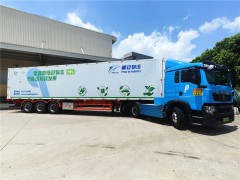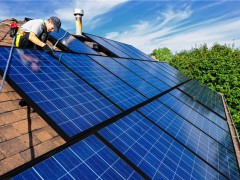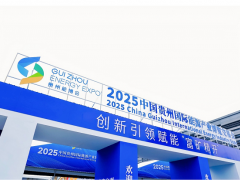據(jù)俄羅斯油氣網(wǎng)4月27日奧斯陸報(bào)道,挪威能源研究和商業(yè)情報(bào)公司雷斯塔能源公司(Rystad)的最新研究結(jié)果顯示,由于能源轉(zhuǎn)型的加快,到2030年前,全球碳捕獲、利用和儲(chǔ)存(CCUS)項(xiàng)目有望每年從大氣中捕獲5.5億噸以上的二氧化碳。
由于脫碳的步伐加快,這一產(chǎn)能增長比目前每年捕獲的4500萬噸二氧化碳增加了10倍以上。
項(xiàng)目公告數(shù)在2021年出現(xiàn)激增,目前的管道包含200多個(gè)開發(fā)項(xiàng)目,是目前全球運(yùn)營項(xiàng)目的3倍多。
根據(jù)目前的發(fā)展和預(yù)期的規(guī)模經(jīng)濟(jì),到2030年前,CCUS項(xiàng)目的成本預(yù)計(jì)將在每噸捕獲的二氧化碳75~100美元之間,這意味著到2030年前,該領(lǐng)域的總市場價(jià)值每年可能達(dá)到550億美元。
然而,即便如此,總碳捕獲能力仍將遠(yuǎn)遠(yuǎn)低于限制全球氣候變暖所需的水平,無法滿足Rystad提出的1.6°C氣候情景或國際能源署提出的凈零情景。
這兩種情景都需要到2050年前捕獲近80億噸二氧化碳,比2030年前預(yù)計(jì)的5.5億噸/年大幅增加。
如果世界要實(shí)現(xiàn)這些目標(biāo),從2030年起就需要積極投資和部署CCUS技術(shù)。
由于支持性政策和激勵(lì)措施,到2030年前,歐洲和北美將主導(dǎo)CCUS市場,貢獻(xiàn)4.5億噸/年的二氧化碳捕獲能力,占全球預(yù)計(jì)總捕獲量5.5億噸/年的80%。
預(yù)計(jì)到2030年前,歐洲的二氧化碳年捕獲能力將達(dá)到2.22億噸,比目前的700萬噸大幅躍升。
在北美,加拿大最近在今年的預(yù)算中宣布了一項(xiàng)稅收抵免計(jì)劃,50%的稅收抵免用于傳統(tǒng)捕獲技術(shù),37.5%的稅收抵免用于CCUS運(yùn)輸和儲(chǔ)存設(shè)備。這將顯著改善加拿大CCUS項(xiàng)目的經(jīng)濟(jì)效益,接近該國目前每噸二氧化碳排放的平均成本30美元。
在美國,如果“重建更好未來”法案獲得參議院通過,根據(jù)提供的稅收抵免將從每噸二氧化碳50美元增加到85美元。
經(jīng)濟(jì)和財(cái)政限制是CCUS項(xiàng)目未能按計(jì)劃進(jìn)行的主要原因,但越來越多的國家開始認(rèn)識(shí)到向此類項(xiàng)目提供支持的重要性。
李峻 編譯自 俄羅斯油氣網(wǎng)
原文如下:
Rystad Energy: Carbon capture capacity poised to surge more than 10 times by 2030
As the energy transition quickens, global carbon capture, utilization and storage (CCUS) projects are on track to pull more than 550 million tonnes of CO2 out of the atmosphere every year by 2030, Rystad Energy research shows.
This capacity growth represents a more than tenfold increase over today’s 45 million tonnes per annum (tpa) of CO2captured, as the drive to decarbonize gathers pace.
Project announcements surged in 2021, with the current pipeline containing more than 200 developments, 3 times more than are currently in operation globally.
based on learnings from current developments and expected economies of scale, CCUS project cost is anticipated to range between $75-$100 per tonne of CO2 captured by 2030, meaning the total market value of the sector could reach $55 billion annually by 2030.
However, even with this rise, total carbon capture capacity could fall far short of the levels needed to limit global warming to meet Rystad Energy’s 1.6°C climate scenario or the IEA net-zero scenario.
Both scenarios require carbon capture of close to 8 gigatonnes of CO2 by 2050, a significant ramp up from the 550 million tpa predicted by 2030.
If the world is to meet these targets, aggressive investment and deployment of CCUS technology will be required from 2030 onwards.
As a result of supportive policies and incentives, Europe and North America will dominate the CCUS market by 2030, contributing 450 million tpa of capture capacity, more than 80% of the projected global total of 550 million tpa.
European capacity is projected to hit 222 million tpa by 2030, a sizeable jump from the 7 million tpa of CO2 captured today.
In North America, Canada recently announced a tax credit scheme in this year’s budget, 50% for traditional capture technology and a 37.5% credit for CCUS transportation and storage equipment.
This will significantly improve CCUS economics for projects in Canada, coming closer to the nation’s current average cost of emitting CO2 of $30 per tonne.
In the US, the tax credit provided under Section 45Q will increase from $50 to $85 per tonne of CO2 if the Build Back Better bill is passed by the Senate.
Economic and financial constraints are the main reason for CCUS projects not moving ahead as planned, but more countries are starting to see the importance of providing support to such projects.
免責(zé)聲明:本網(wǎng)轉(zhuǎn)載自其它媒體的文章及圖片,目的在于弘揚(yáng)石化精神,傳遞更多石化信息,宣傳國家石化產(chǎn)業(yè)政策,展示國家石化產(chǎn)業(yè)形象,參與國際石化產(chǎn)業(yè)輿論競爭,提高國際石化產(chǎn)業(yè)話語權(quán),并不代表本網(wǎng)贊同其觀點(diǎn)和對其真實(shí)性負(fù)責(zé),在此我們謹(jǐn)向原作者和原媒體致以崇高敬意。如果您認(rèn)為本站文章及圖片侵犯了您的版權(quán),請與我們聯(lián)系,我們將第一時(shí)間刪除。







